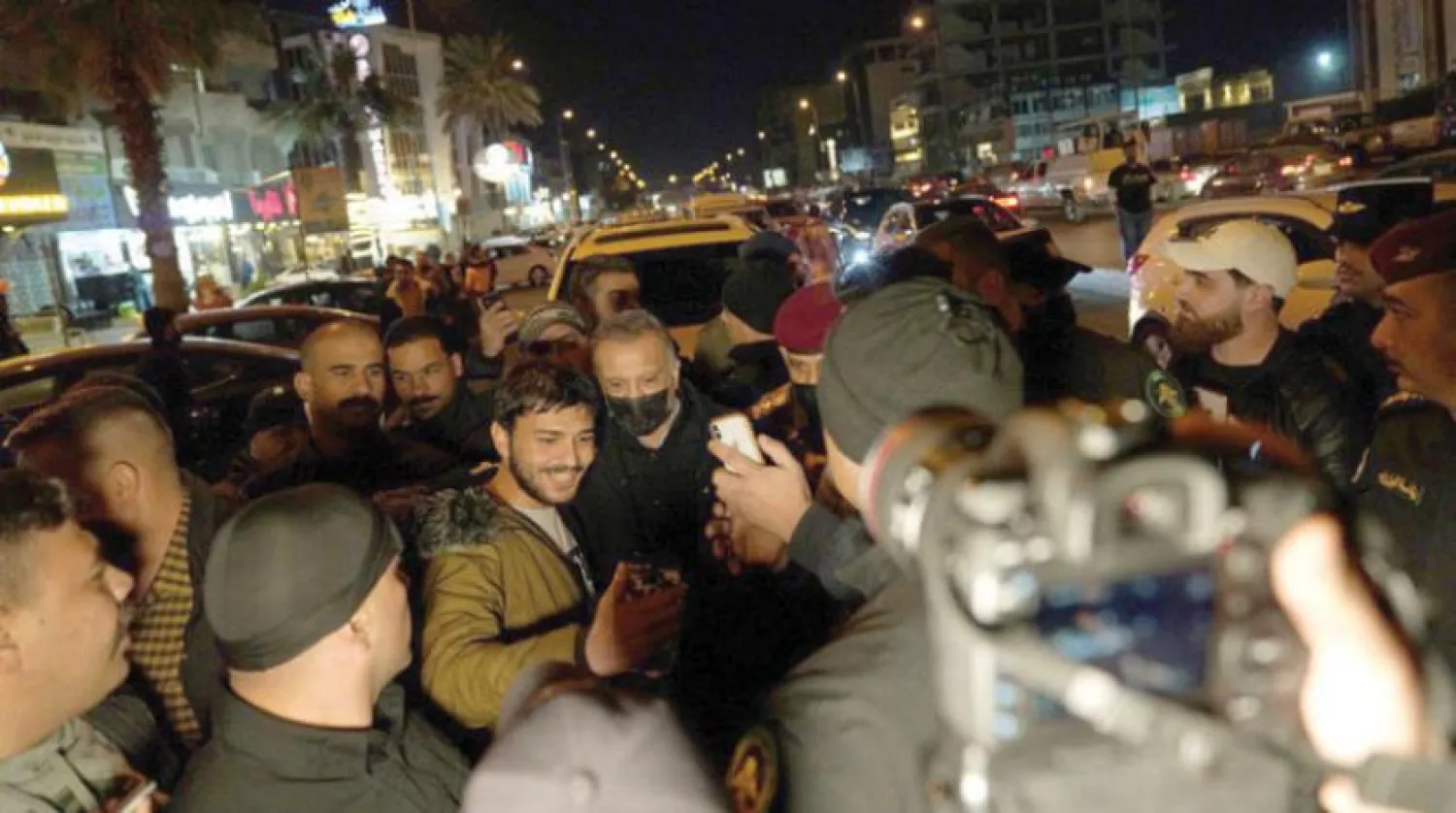Signs of an emerging confrontation between Iraqi Prime Minister Mustafa al-Kadhimi and pro-Iran militia Asaib Ahl al-Haq, led by Qais al-Khazali, have taken social media platforms by storm since Saturday evening.
Kadhimi, who has been challenged by pro-Iran militias like Kataib Hezbollah and Asaib Ahl al-Haq since he was first appointed as prime minister, is trying to restore state authority against the backdrop of frequent attacks against US targets in Iraq by armed factions close to Tehran.
On Friday, Iraqi security forces arrested militia members accused of firing rockets at the US embassy compound in Baghdad.
Asaib Ahl al-Haq defended one of its members who allegedly was involved in the rocket attack that missed its target and landed on a Baghdad home instead, killing seven members of the same family.
The group considered the arrest malicious and denied the member’s involvement.
Sources close to Kadhimi confirmed that the arrested suspect is being investigated by authorities and that the Iraqi judiciary will decide on their fate.
More so, Kadhimi, accompanied by his top military advisers, has inspected parts of the capital, Baghdad, visiting several key security centers and taking selfies with ordinary citizens.
The prime minister's impromptu tours came amid a show-of-force by pro-Iranian militias, including Asaib Ahl al-Haq whose members took to the streets of Baghdad on Friday to protest the arrest of suspects in rocket attacks.
In response to the threats, Kadhimi said in a tweet that Iraq's security is the government's responsibility.
He also warned against putting Iraq into an "absurd adventure," stressing that his government is ready for a "decisive confrontation," if necessary.
Kadhimi’s strongly worded caveat came a few hours before mediators who launched consultations to reach a final settlement for escalating tensions between the militias and government had arrived at a deal.
After the prime minister’s comments, Asaib Ahl al-Haq announced that it has decided to "listen to the voice of reason and wisdom".









